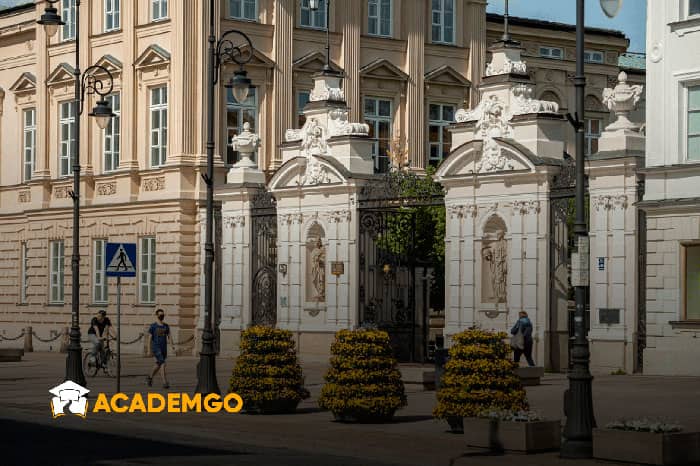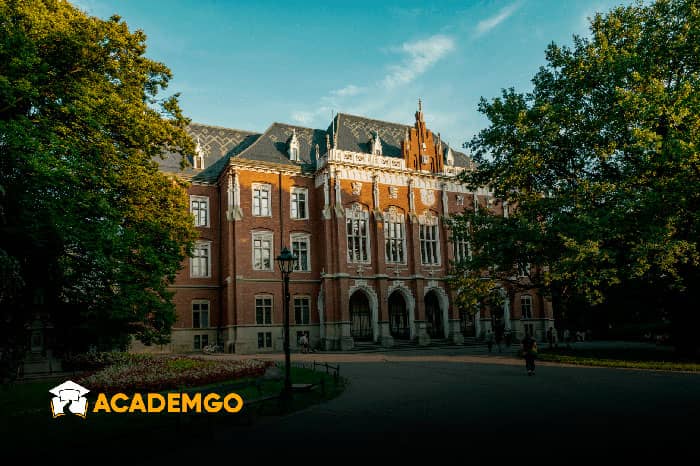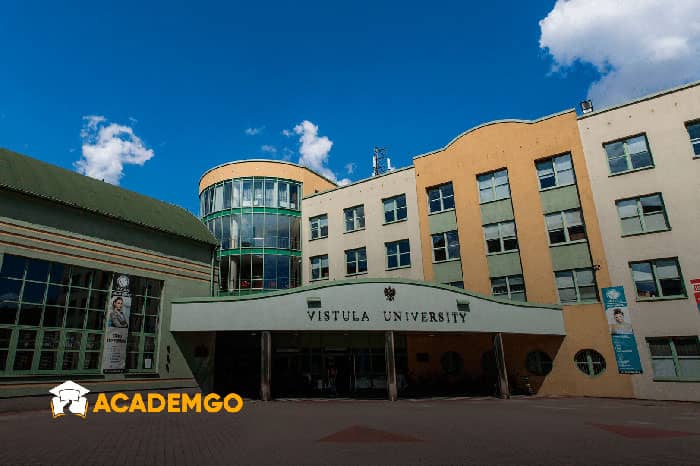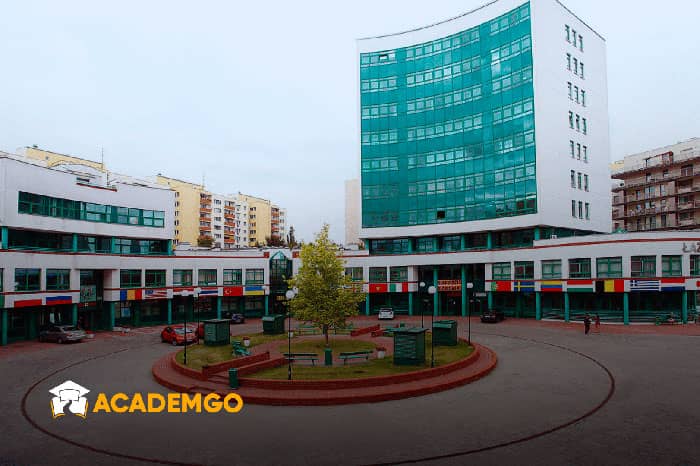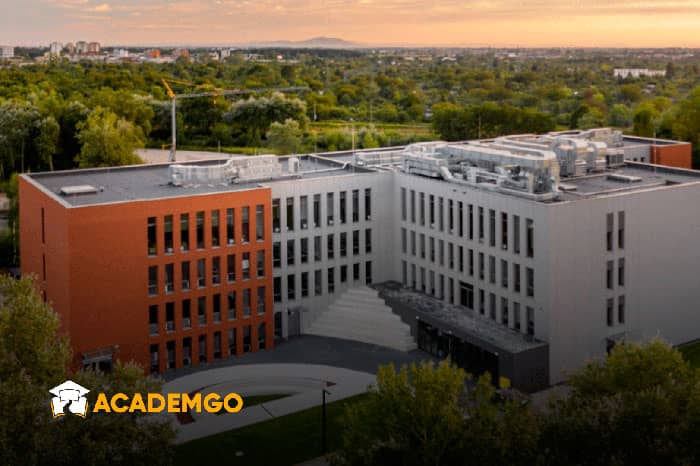
Philology in Polish Universities
AcademGo provides full support for students planning to enroll in philology and linguistics programs in Poland. We assist with choosing a university, preparing documents (including language certificates and certified translations), and submitting applications to selected universities.
Our team also handles diploma recognition (nostrification), accommodation arrangements, and residence permit applications (karta pobytu). With AcademGo’s comprehensive support, your admission and adaptation process in Poland will be smooth and stress-free.
Why Study Philology in Poland?
Are you looking for a country to pursue education abroad?
Consider Poland!
A degree in Philology in Poland allows students to deepen their knowledge of languages, literature, culture, and linguistics. Polish universities offer programs in both Polish and English, making education accessible to students from various countries.
Key advantages of studying philology in Poland:
- Wide range of languages – Programs cover not only Polish but also English, German, French, Spanish, and even Eastern languages.
- Practical focus – Courses combine theoretical knowledge with practical skills in translation, editing, and intercultural communication.
- Strong career prospects – Graduates find employment in teaching, translation, journalism, cultural exchange, and international organizations.
- Internship opportunities – Students can gain experience in publishing houses, language schools, educational institutions, and cultural organizations in Poland and abroad.
If you're interested in learning more about studying in Poland as an international student, check out our guide on Higher Education in Poland.
Admission Requirements for Philology Programs in Poland
To apply for a Philology program in Poland, students must provide:
- High school diploma (for bachelor’s programs) or bachelor’s degree (for master’s programs)
- Diploma recognition (nostrification) (for bachelor’s degree applicants)
- Certified translation of educational documents into Polish
- Language proficiency certificate: B1–B2 level for Polish-taught programs, IELTS (6.0) or TOEFL iBT (87) for English-taught programs
- Valid passport (valid for at least three years)
- Health insurance covering at least 30,000 euro
Some universities may also require a motivation letter or portfolio, especially for creative programs. More detailed admission requirements can be found on university websites or by contacting AcademGo. If you need assistance with diploma recognition, check our guide on Nostrification in Poland.
Tuition Fees for Philology Programs in Poland
Tuition fees vary depending on the university, language of instruction, and program type:
- Public universities: From 2000 euro per year in Polish and 2700 euro per year in English
- Private universities: From 1800 euro per year in Polish and 2500 euro per year in English
- Specialized programs (translation, rare languages): 2500–3500 euro per year, especially if they include international internships
Many universities offer scholarships for academic excellence or extracurricular achievements, ranging from 300 to 500 euro per month. Some universities also provide tuition fee discounts (up to 100%) for students who actively participate in university life. If you're looking for ways to reduce tuition costs, check our guide on Scholarships in Poland.
Students can also work part-time during the academic year and full-time during holidays. Those under 26 years old are exempt from income tax, allowing them to earn around 1000–1200 euro per month for a full-time job.

Top Universities for Philology in Poland
Many Polish universities offer high-quality philology programs. The most popular institutions among international students include:
Specializations in Philology
Students in philology programs can choose from various specialized fields:
- Translation and Intercultural Communication – 1800–3500 euro per year
- Literary Studies and Cultural Studies – 1200–2500 euro per year
- Foreign Language Teaching – 1000–3000 euro per year
- Linguistics and Rare Languages – 2000–4000 euro per year
The first semesters focus on general courses such as introduction to linguistics, literary theory, and grammar. Starting from the third or fourth semester, students choose specialized courses based on their career goals.
Many universities also offer language exchange programs, internships, and participation in the Erasmus+ program, allowing students to gain international experience.
Career Prospects for Philology Graduates
A degree in Philology prepares students for international careers by combining academic knowledge with practical skills.
Graduates can work in:
- Translation and interpreting services, specializing in technical, literary, or legal translation
- Teaching and education, working in schools, universities, and private language institutes
- Publishing and media, focusing on editing, journalism, and content creation
- Cultural organizations and international cooperation, engaging in diplomacy, cultural exchange programs, and tourism
Many students take advantage of Erasmus+ exchange programs to gain international experience, improving their career prospects both in Poland and abroad.

Frequently Asked Questions
